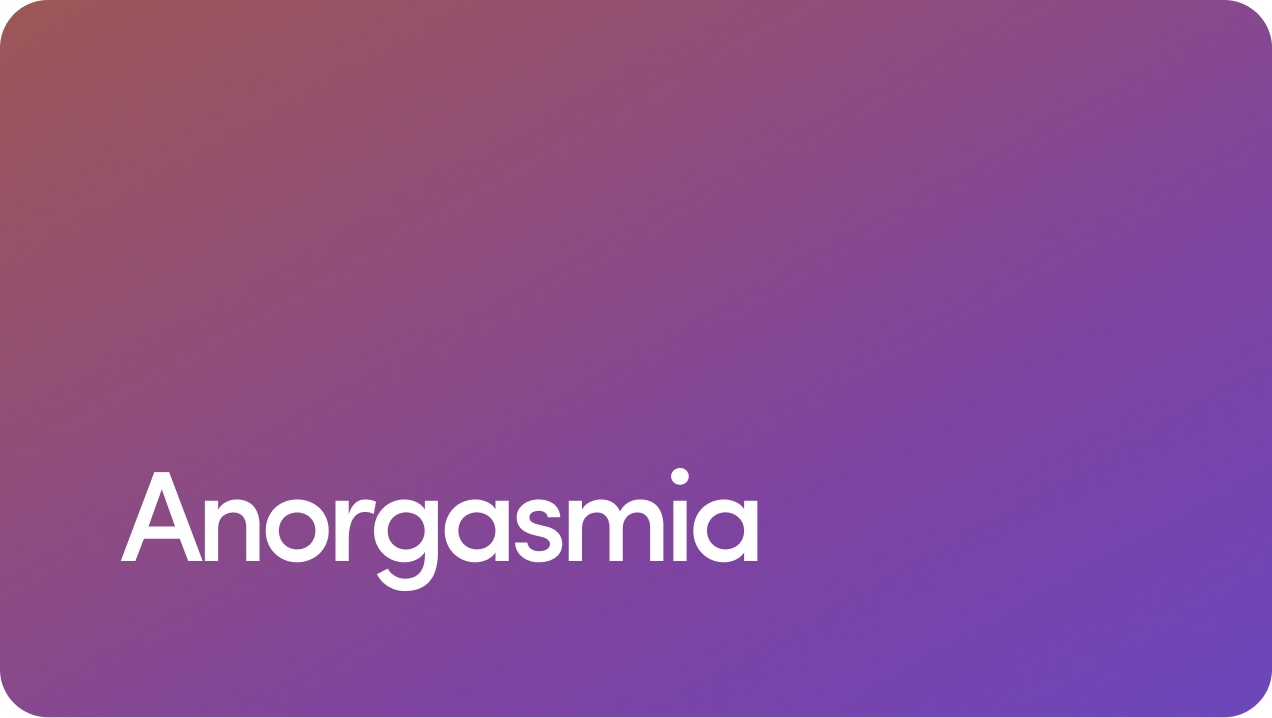Content
Your sex life, your way
Sea Moss for Men

Sea moss has gained popularity for its potential health benefits, including for men. The health claims surrounding sea moss are largely based on its rich nutrient profile. Sea moss may offer several health benefits for men, including support for thyroid function, immune health, and potential improvements in sexual health and fertility. However, robust clinical studies to support these benefits is still limited. More scientific research is needed to confirm its efficacy in these areas. Men considering sea moss should be mindful of the potential risks, particularly excessive iodine intake, and should ensure they are sourcing sea moss from trusted suppliers to avoid contamination. We recommend consulting with a healthcare provider before using sea moss, especially in men with thyroid disorders, bleeding disorders, or digestive issues.
Content
The never-ending search for supplements to boost health and wellness is leading many guys to the sea. Specifically, men are checking out sea moss supplements and their promises to improve your cardiovascular system, thyroid function, immune system, and sexual performance.
But are the alleged benefits of sea moss for men really all they’re cracked up to be or are these supplements just the latest products with bold claims to wash ashore on store shelves?
There is some evidence to suggest that nutrient-packed sea moss, also known as Irish moss, provides some health benefits. But there isn’t a sizable amount of research supporting sea moss as a super supplement. And there are some potential side effects.
Let’s take a look at exactly what sea moss is and how it’s sold. We’ll also cover what researchers have discovered about sea moss, and whether it’s worth diving into it as a possible treatment for erectile dysfunction or other problems.
What Is Sea Moss?
Sea moss, also known as Irish moss or Irish sea moss, is a type of red algae. The formal name of sea moss is chondrus crispus, but we’ll stick with sea moss for now.
Sea moss is also a cousin of sorts to the types of seaweed that have long been staples in Asian cuisine, and in recent years have become popular around the world. Seaweed and sea moss contain some of the same nutrients and health benefits. While not a “superfood” — a term that is used to describe a category of food with superior nutritional benefits — sea moss does have some nutritional value to be sure.
Sea moss is available in raw form to be consumed in salads, soups, smoothies (it’s a great thickening agent and a main ingredient in carrageenan), or other meals or snacks. It’s also sold in supplement form as pills, gels, gummies, or powders.
Health Benefits of Sea Moss
Sea moss is popular for its claimed health benefits, but it's important to recognize that many of these claims are based on anecdotal evidence rather than solid scientific research. What’s more, most of the existing research focuses on compounds and molecules found in many marine plants, rather than on sea moss itself.
Sea moss gel benefits, or those found in any form of Chondrus crispus, are largely found in the essential nutrients they contain. Sea moss is packed with vitamins and minerals, such as folate, vitamin K, B vitamins, iron, magnesium, potassium, zinc, and calcium.
Sea moss is also a terrific source of iodine, which is essential for thyroid health and preventing hypothyroidism (underactive thyroid). Your thyroid is a small, but remarkably important gland located at the front of the neck. It produces hormones that regulate your metabolism, heart and muscle function, and so much more. Without healthy levels of iodine, thyroid function suffers.
Sea moss is also an excellent source of antioxidants, according to a 2024 report in the journal Marine Drugs. Antioxidants, which are part of many plant-based foods, fight free radicals in the body, helping to protect against cancer, heart disease, diabetes, and other chronic conditions. The researchers noted that sea moss and other types of red algae contain a rich blend of disease-fighting compounds, which might help bolster the immune system. However, most of the research is preliminary and the findings have yet to be confirmed in human trials.
In addition, sea moss and most edible seaweeds have omega-3 fatty acids, which are associated with a whole host of health benefits, from supporting brain health to helping fight inflammation, and helping to keep your blood pressure and cholesterol under control
And a 2023 review of the cancer-fighting properties of sea moss and other plants suggests that certain types of algae, fungi, and bacteria could help tamp down an overactive immune system—and the chronic inflammation it triggers. The review, published in Frontiers in Oncology, notes that sea moss and its healthy herb brethren are rich in microbial (pathogen) associated molecular patterns (MAMPs), which may be useful in immunotherapy treatments.
The vitamins in sea moss and the alleged anti-inflammatory properties mentioned earlier may also make it a remedy for managing eczema flares. However, there is currently a lack of clinical studies supporting the efficacy and safety of sea moss for treating eczema, according to the National Eczema Association.
Sea moss and other similar plants of the ocean contain prebiotics that can contribute to good digestive health and proper gut health, which can play a role in everything from brain function to weight loss.
Sexual Health Benefits of Sea Moss
Sea moss supplements aren’t the best-known sex pills, and there are certainly many other ED treatments with a proven track record of success, as well as newer treatments that are starting to catch on.
Studies exploring the effects of sea moss on sexual function are rare, however, a 2021 study on rats found that sea moss appeared to improve their testicular function, which can boost fertility and increase sexual activity. Yes, it was a rat study, but researchers have to start somewhere.
One way that sea moss may help improve performance in the bedroom is by improving circulation. Blood flow to the penis is a critical component of getting hard and staying hard. Sea moss might help in this department by containing vitamins and minerals, as well as fiber, which supports healthy blood flow. But again, this is not proven by science.
Sea Moss Side Effects
Sea moss is often sold as a supplement - including gel, powder, and in capsules or gummies. Like most supplements and medications, sea moss benefits are also accompanied by possible side effects, some of which are potentially serious.
One risk of sea moss supplements is ingesting too much iodine. Most standard Western diets provide all the iodine you need. So it’s important to talk with a healthcare professional about your risk of iodine overdose based on your current diet and the amount of iodine content in your sea moss supplement. The best approach is to consult a healthcare provider before starting any new supplement.
Another risk of consuming sea moss, seaweed, and other ocean-based plants is that these items are the products of their environment. In waters containing heavy metals, such as arsenic and lead, the sea moss growing there may absorb those heavy metals and pose a health risk to anyone who consumes it. It’s worth noting that consuming certain metals in small amounts isn’t usually toxic—trace amounts show up in all kinds of foods—but keep it in mind if you want to add sea moss supplements or raw sea moss to your health regimen.
What Is Sea Moss Good For?
Realistically, sea moss benefits may be limited to simply being sources of some key nutrients and antioxidants that help promote better overall health.
You may want to add sea moss to your collection of ED home remedies worth trying, at least temporarily. If you’re considering sea moss, be mindful of the potential risks, particularly excessive iodine intake.
You should also do your best to ensure supplement manufacturers are sourcing sea moss from trusted suppliers to avoid contamination. We recommend consulting with a healthcare provider before using sea moss, especially in men with thyroid disorders, bleeding disorders, or digestive issues.
10 Sources
- Aakre, I., et al (2020). Iodine Status and Thyroid Function in a Group of Seaweed Consumers in Norway. https://pubmed.ncbi.nlm.nih.gov/33202773/
- Cobos, Á. (2023). 'Superfoods': Reliability of the Information for Consumers Available on the Web. https://pmc.ncbi.nlm.nih.gov/articles/PMC9914617/#B1-foods-12-00546 Hoertel HA, et al. (2014). A randomized crossover, pilot study examining the effects of a normal protein vs. high protein breakfast on food cravings and reward signals in overweight/obese “breakfast skipping”, late-adolescent girls. https://nutritionj.biomedcentral.com/articles/10.1186/1475-2891-13-80
- Darias-Rosales, J., Rubio, C., Gutierrez, A., Paz, S., Hardisson, A. (2020, December). Risk assessment of iodine intake from the consumption of red seaweeds (Palmaria palmata and Chondrus crispus). Environmental Science and Pollution Research International. https://pubmed.ncbi.nlm.nih.gov/32803579/
- U.S. Department of Agriculture, Agricultural Research Service. (2024). FoodData https://fdc.nal.usda.gov/food-details/168456/nutrients
- Park, S., Sharma, A., Lee, H. (2024). An Update on the Chemical Constituents and Biological Properties of Selected Species of an Underpinned Genus of Red Algae: Chondrus. Marine Drugs. https://pmc.ncbi.nlm.nih.gov/articles/PMC10817618/
- Mazzio, E., Barnes, A., Badisa, R., Council, S., Soliman, K. (2023). Plants against cancer: the immune-boosting herbal microbiome: not of the plant, but in the plant. Basic concepts, introduction, and future resource for vaccine adjuvant discovery. Frontiers in Oncology. https://pmc.ncbi.nlm.nih.gov/articles/PMC10426289/
- National Eczema Association. (2023). Get the Facts: Eczema and Sea Moss. https://nationaleczema.org/blog/sea-moss-for-eczema/
- Ibrahim, N., Ibrahim, S., Ashour, O., Abdel-Kader, T., Hassan, M., Ali, R. (2021). The effect of Red Seaweed (chondrus crispus) on the fertility of male albino rats. Saudi Journal of Biological Sciences. https://pmc.ncbi.nlm.nih.gov/articles/PMC8241699/
- Wei B, et al (2023). The relationship of omega-3 fatty acids with dementia and cognitive decline: evidence from prospective cohort studies of supplementation, dietary intake, and blood markers. https://pmc.ncbi.nlm.nih.gov/articles/PMC10447496/
- Weylandt, K. H. et al (2015). Omega-3 Polyunsaturated Fatty Acids: The Way Forward in Times of Mixed Evidence. https://pmc.ncbi.nlm.nih.gov/articles/PMC4537707/
Editorial Standards
Hims & Hers has strict sourcing guidelines to ensure our content is accurate and current. We rely on peer-reviewed studies, academic research institutions, and medical associations. We strive to use primary sources and refrain from using tertiary references. See a mistake? Let us know at [email protected]!
This article is for informational purposes only and does not constitute medical advice. The information contained herein is not a substitute for and should never be relied upon for professional medical advice. Always talk to your doctor about the risks and benefits of any treatment. Learn more about our editorial standards here.
Felix Gussone, MD
Education
Doctor of Medicine - Ludwig-Maximilians-University, 2014
Other Certificates & Certifications
Board Certified Medical Affairs Specialist - Accreditation Council for Medical Affairs, 2024
Specialties & Areas of Focus
General Practice
Previous Work Experience
Manager, Medical Content & Education - Ro, 2021–2024
Senior Health Editor - Medium, 2019–2021
Associate Medical Producer - NBC News, 2015–2019
Production Assistant - CNN, 2015
Media Mentions & Features
Dr. Gussone has contributed widely to consumer health news media, including NBC News TODAY and NBC Nightly News, and has written about his own weight loss journey for CNN.
Why I Practice Medicine
Dr. Gussone discovered his passion for creating medical content and educating the public about health while working with CNN’s Dr. Sanjay Gupta. He realized that the media could deliver essential health information to millions, surpassing the reach of one-on-one care in a clinical setting.
Hobbies & Interests
Scuba diving, traveling, cinema, and perfume making
Related Articles
Related Conditions
 Erectile Dysfunction
Erectile Dysfunction
 Premature Ejaculation
Premature Ejaculation
 Low Testosterone
Low Testosterone
 Retrograde Ejaculation
Retrograde Ejaculation
 Pelvic Floor Dysfunction
Pelvic Floor Dysfunction
 Anorgasmia
Anorgasmia